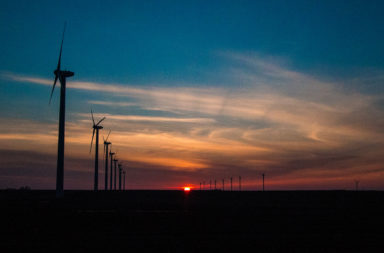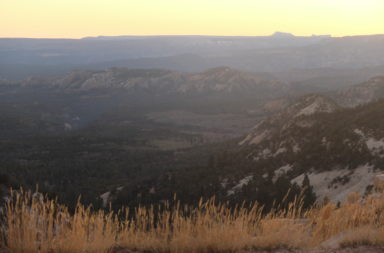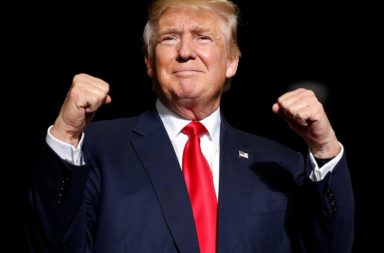People looking to Trump’s latest book, “Crippled America,” for a level of outrageousness that matches the man in his off-the-cuff moments will be disappointed.
You won’t find withering nicknames (Lyin’ Ted, Little Marco, “low-energy” Jeb), musings on punishing women who seek abortions, or attacks on the wives of competitors (though you will find a list of people who have failed to stay loyal to him, mostly business executives).
But if you’re looking for a detailed – as detailed as Trump is capable, at least – philosophy toward presidential leadership, this is it.
You’ll also find lots and lots of gems that read as though they came straight from the candidate’s half-chewed brain and ridiculous levels of self-aggrandizement.
For instance, he ends his book with a 17-page personal bio that lists properties he owns and concludes with what sounds like something he truly thinks is remarkable: “Mr. Trump has more than seven million followers on social media and is passionate about fixing America,” almost like “fixing America” is a hobby, like distance running or oil painting.
Let’s cover some of the highlights, broken down by subject area.
Iraq and Foreign Policy
Trump’s foreign policy is an odd mixture of brash assertiveness and retreat from the world stage to look inward, to take care of things at home, a home that in his view is about to collapse. I say an “odd mixture” because he also promises to go after even the families of terrorists and unleash never-before-used forms of torture.
He’s nothing if not a master at connecting every shortcoming to China.
“We’re spending billions of dollars protecting countries that should be paying us to do the job yet we can’t build roads in our own cities. We can’t build schools in our own communities. I’ve been to China numerous times, and everywhere you look there are cranes reaching toward the sky.”
One thing even people outside Trump’s base of support appreciate is his condemnation of the Iraq war. While his claim to have been publicly against it before it started is questionable, he openly calls it a mistake now in his book.
“It made no sense to me. I said then that it would be a disaster and would destabilize the Middle East. I said that without Iraq to hold them back, Iran would attempt to take over the Middle East.”
The media
The combative but mutually beneficial relationship between Trump and the media is well established. He gets billions in free publicity; they bank off the viewers his outlandish statements attract.
Trump is very aware of this dynamic and admits to taking advantage of media tendencies in his book.
“I use the media the way the media uses me – to attract attention. If you say outrageous things and fight back, they love you.”
He later acknowledges that he sometimes exaggerates simply for the attention, apparently under the philosophy that there’s no such thing as bad publicity. That notion had never been applied to running for president, and he’s beginning to press up against the ill effects of it.
“So sometimes I make outrageous comments and give them what they want — viewers and readers — in order to make a point,” Trump writes. “I’m a businessman with a brand to sell. When was the last time you saw a sign hanging outside a pizzeria claiming ‘The fourth best pizza in the world’?!”
Immigration
He blames illegal immigration, which he wrongly asserts is at an all-time high, on unemployment, which he wrongly asserts over 20 percent.
“The illegal immigrants … have taken jobs that should go to people here legally, while over 20 percent of Americans are currently unemployed.”
And while he actually says he wants more legal immigration, “citizenship is not a gift we can afford to keep giving away.”
In case there was any doubt, he also very much opposes the migration of Middle Eastern refugees. He argues it would invite acts of terrorism.
“We’re going to open the gates to refugees from places like Syria, which is like extending a personal invitation to ISIS members to come live here and try to destroy our country from within.”
Health care
The media has at times painted Trump as independent from Republican orthodoxy on health care, which is essentially to remove as much regulation as possible, let the free market work, and insurance costs will fall through competition. That idea is wrong, and the media is wrong about Trump, who now says the problem is too much government.
Trump both doesn’t want people to “die in the streets” – something that’s already legally forbidden – and opposes a more forceful government role in health care. He supported a single-payer plan in the past, but now:
“…the world has changed; I’ve changed. I don’t think a single-payer system makes sense anymore. If I did, I would say it…It works incredibly well in Scotland, for example, and maybe it could have worked here at a different time. But not anymore.”
The answer now, after the endless negotiations between industry players that birthed Barack Obama’s highly imperfect Affordable Care Act? Put people in a room and let them negotiate again, Trump says.
Why he doesn’t get specific
For people who have long wanted Trump to actually say how he’d do anything, he has this to say in response:
“At lot of times when I speak, people say I don’t provide specific policies that some pollster has determined are what people want to hear. I know that’s not the way the professional politicians do it — they seem to poll and focus group every word. But there’s nobody like me. Nobody.”
Specifics are for politicians; Trump is not a politician; therefore, he doesn’t provide specifics. Got it?




